From Molecules to Organisms: Structures and Processes
-
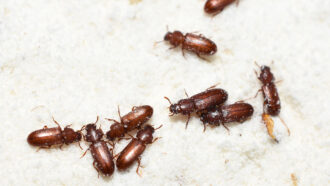 Animals
AnimalsThese beetles ‘drink’ water using their butts
Red flour beetles can survive in very dry environments. New research shows how the beetles can suck water from the air using their rear ends.
By Freda Kreier -
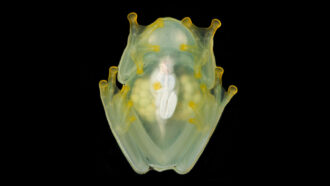 Animals
AnimalsSleeping glass frogs go into stealth mode by hiding red blood cells
Glass frogs snoozing among leaves blend in by hiding almost all their red blood cells in their liver.
By Susan Milius -
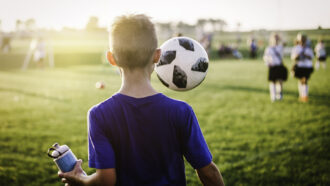 Health & Medicine
Health & MedicineHow to be heat-safe when playing sports
Protecting young athletes from overheating is getting more important as climate change turns up the temperature.
By Megan Sever -
 Animals
AnimalsThis biologist uses microwave radiation to save endangered species
Pei-Chih Lee works to preserve genetic material that can help researchers learn more about endangered animals, such as pandas and clouded leopards.
-
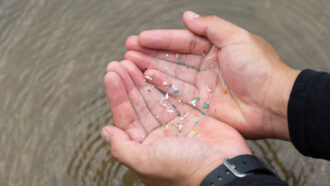 Environment
EnvironmentSea life may suffer as plastic bits alter metals in water
This interplay between plastics and metals could affect how each affects the environment — and suggests opportunities for controlling their risks.
-
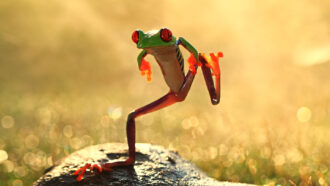 Animals
AnimalsLet’s learn about frogs
Frogs are a fascinating bunch of amphibians. Unfortunately, they’re also dying off in huge numbers.
-

These lemurs take nose-picking to a new level
A nose-picking aye-aye’s spindly middle digit probably pokes all the way into the back of the throat, CT scans show.
By Maria Temming and JoAnna Wendel -
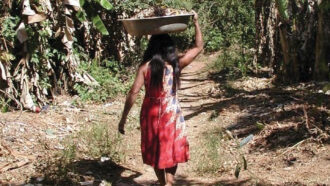 Agriculture
AgricultureNative Amazonians make rich soils — and ancient people may have too
Modern Amazonians make nutrient-rich soil from ash, food scraps and burns. The soil strongly resembles ancient “dark earth” found in the region.
By Freda Kreier -
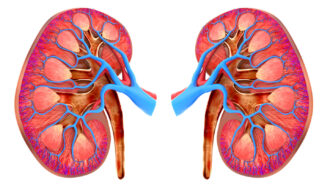 Health & Medicine
Health & MedicineScientists Say: Kidney
The kidneys remove waste and excess water from the blood, forming urine.
-
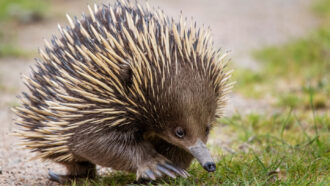 Animals
AnimalsWhen it’s hot, echidnas blow snot bubbles to cool off
These spiky Australian mammals have a trick to moisten their noses, allowing them to survive hot temperatures that should kill them.
By Elise Cutts -

-
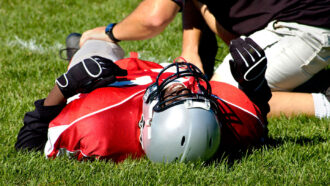 Health & Medicine
Health & MedicineNew brain scans may show if a concussion has not yet healed
Concussions change certain brain waves, and delta waves may be the best signs of when teens can return to competitive sports.